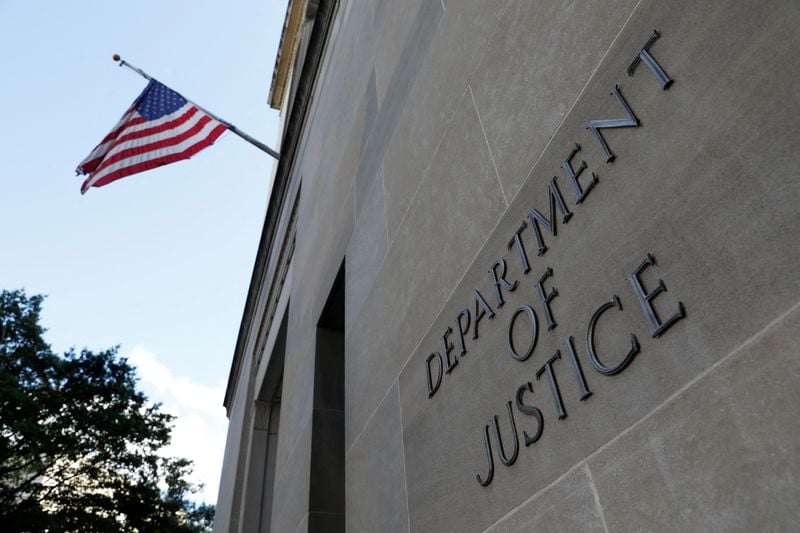Baltimore, Maryland – Chief U.S. District Judge James K. Bredar today sentenced Lawrence A. Marvitz, age 44, of Hagerstown, Maryland, to 69 months in federal prison, followed by lifetime supervised release, for failing to register as a sex offender and for violating his supervised release for a previous federal conviction. Judge Bredar also ordered that, upon his release from prison, Marvitz must continue to register as a sex offender in the places where he resides, where he is an employee, and where he is a student, under the Sex Offender Registration and Notification Act (SORNA).
The sentence was announced by United States Attorney for the District of Maryland Erek L. Barron and Special Agent in Charge Thomas J. Sobocinski of the Federal Bureau of Investigation, Baltimore Field Office.
According to his guilty plea, on July 13, 2012, Chief Judge Bredar sentenced Marvitz to a year and a day in federal prison, followed by 20 years of supervised release, for possession of child [censored]ography. As a condition of his supervised release, Marvitz was prohibited from possessing or using any computer, except with the permission of his probation officer, or in connection with authorized employment. Marvitz was also required to cooperate with U.S. Probation and Pretrial Services Office monitoring of compliance with this condition, including participating in a computer and internet monitoring program, identifying computer systems and internet-capable devices to which Marvitz had access, and permitting random, unannounced examinations of electronic devices under his control.
As detailed in his plea agreement, Marvitz was released from custody in May 2013. In January 2017 Marvitz’s case was transferred to the U.S. Probation Office for the Northern District of West Virginia for supervision. On September 19, 2019, Marvitz moved to an apartment in Hagerstown, Maryland. Marvitz did not obtain permission from his U.S. Probation Officer prior to changing his residence, nor did he update his sex offender registration by registering his new address in West Virginia or by registering as a sex offender in Maryland.
On October 9, 2019, a U.S. Probation Officer (USPO) conducted an unannounced home visit to Marvitz’s new address and observed what appeared to be an empty computer box. Marvitz advised the USPO that he had just purchased the new computer and that he was planning to remove his old laptop. Marvitz had not obtained the permission of the USPO prior to purchasing the new computer. The USPO instructed Marvitz to contact the monitoring company immediately so the monitoring software could be installed on the new computer. After the visit by the USPO, Marvitz did update the West Virginia and Maryland sex offender registries with his address.
On November 20, 2019, the USPO returned to Marvitz’s residence. Marvitz advised the USPO that he had wiped his old laptop and sold it to a local pawn shop. The USPO observed an internet cable that disappeared behind a computer desk. Upon further inspection, the USPO located Marvitz’s old laptop and an external hard drive hidden behind the computer desk. Search warrants were subsequently obtained for Marvitz’s apartment and for a total of 20 electronic devices that were ultimately seized. A forensic examination of the old laptop and external hard drive found by the USPO revealed seven videos and five images depicting prepubescent minors engaged in sexually explicit conduct. The files had been downloaded from the internet between January 12, 2018 and September 30, 2019.
This case was brought as part of Project Safe Childhood, a nationwide initiative launched in May 2006 by the Department of Justice to combat the growing epidemic of child sexual exploitation and abuse. Led by the United States Attorney’s Offices and the Criminal Division’s Child Exploitation and Obscenity Section, Project Safe Childhood marshals federal, state, and local resources to locate, apprehend, and prosecute individuals who sexually exploit children, and to identify and rescue victims. For more information about Project Safe Childhood, please visit www.justice.gov/psc. For more information about Internet safety education, please visit www.justice.gov/psc and click on the “Resources” tab on the left of the page.
United States Attorney Erek L. Barron commended the FBI for its work in the investigation and thanked the U.S. Probation and Pretrial Services Office for its assistance in the investigation. Mr. Barron thanked Assistant U.S. Attorney Judson T. Mihok, who prosecuted the case.
For more information on the Maryland U.S. Attorney’s Office, its priorities, and resources available to help the community, please visit www.justice.gov/usao-md/project-safe-childhood and https://www.justice.gov/usao-md/community-outreach.
# # #
